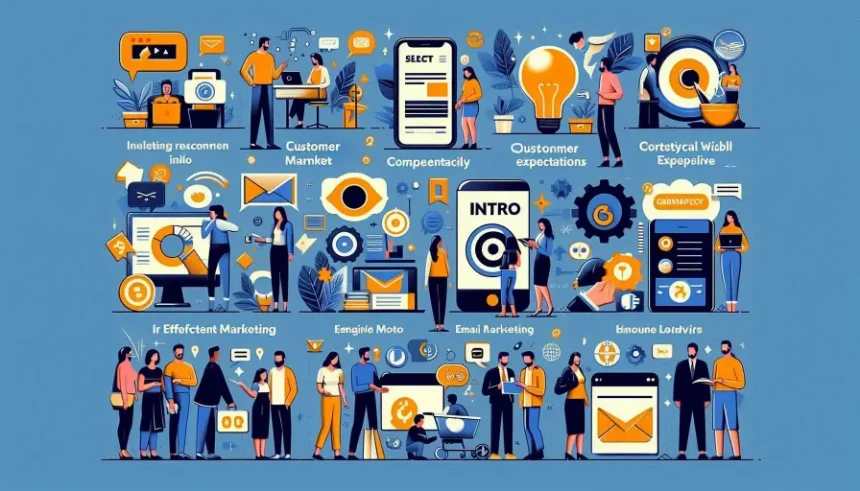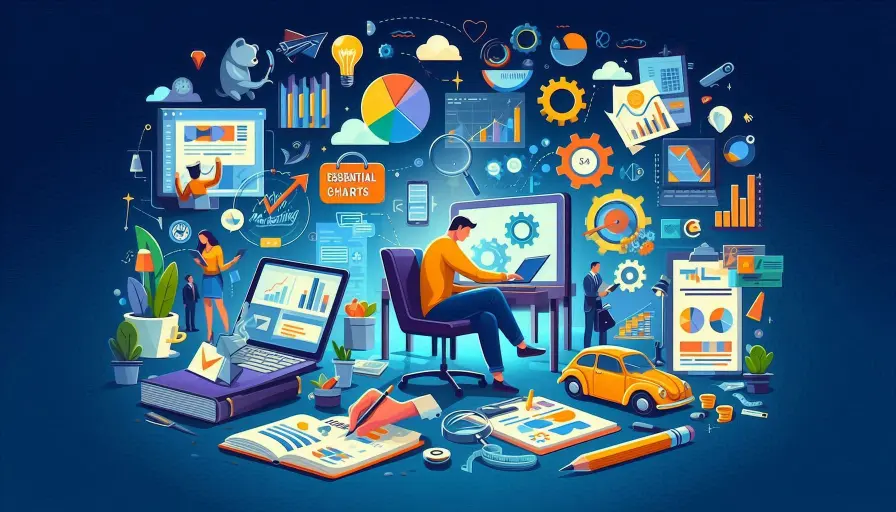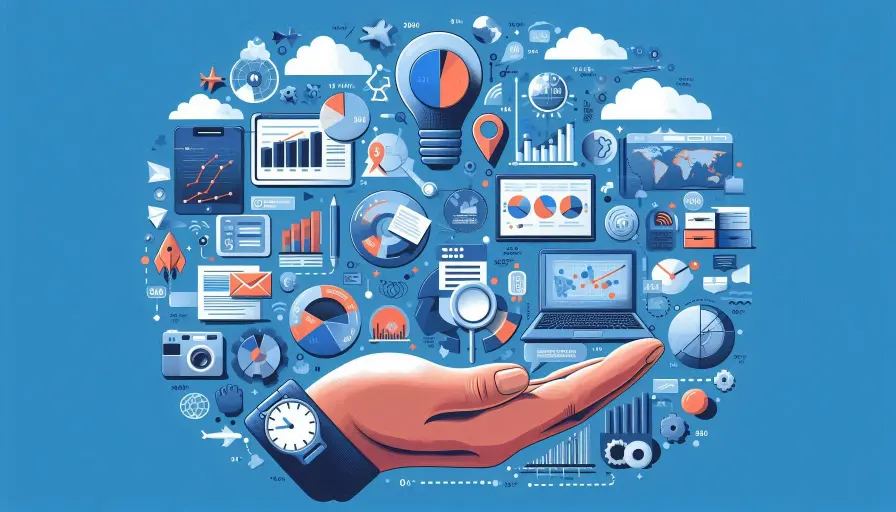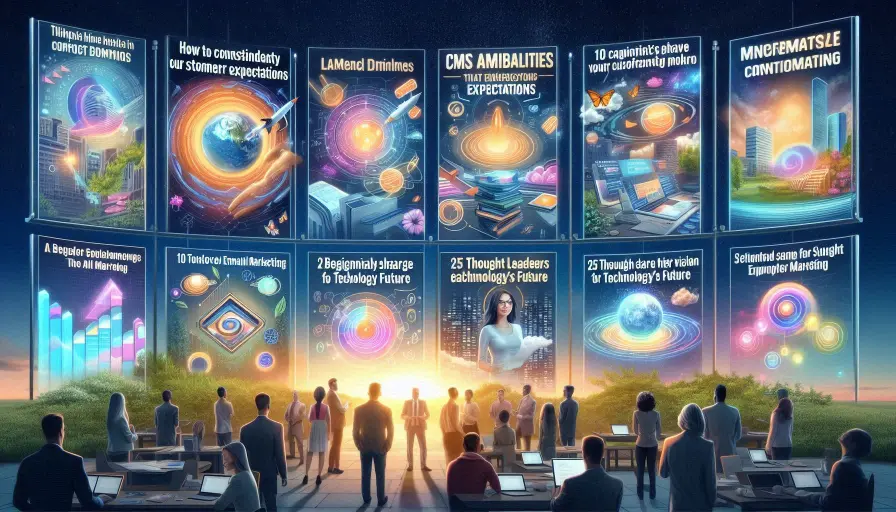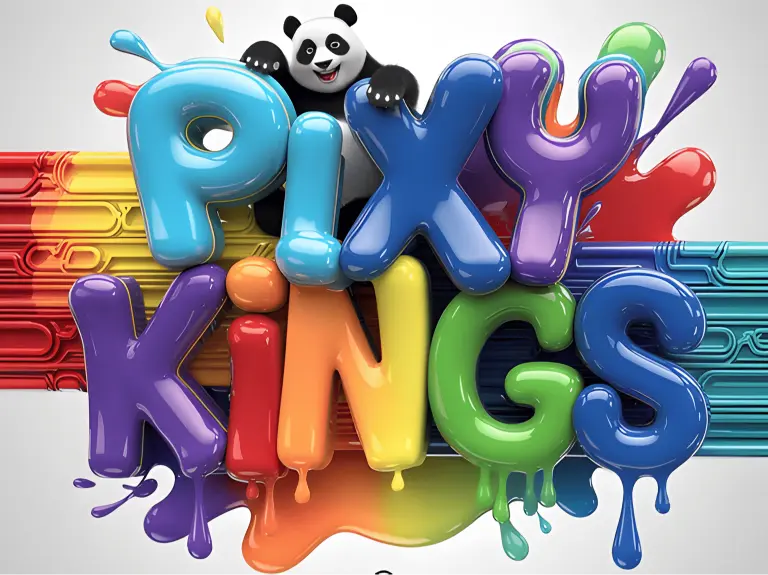As we stand on the edge of an increasingly digitized era, the role of technology in shaping our world has never been more profound. From artificial intelligence revolutionizing industries to the ethical questions surrounding data privacy, the trajectory of technological advancement holds both promise and uncertainty. In this dynamic landscape, understanding where we are headed requires more than just trend reports — it demands perspectives from those who are actively influencing the future.
In this comprehensive feature, we bring together the voices of 25 globally recognized thought leaders — innovators, futurists, technologists, and entrepreneurs — each offering their unique predictions and visions for the future of technology. What does the world look like with mainstream quantum computing? How can blockchain go beyond cryptocurrencies to transform governance and finance? Will AI amplify human potential or replace it? These are just a few of the questions tackled in this collaborative exploration.
Whether you’re a developer, investor, policy maker, or simply someone intrigued by the possibilities that lie ahead, this article delivers a panoramic view of where technology is heading — and why it matters to everyone.
Artificial Intelligence and the Augmented Human
Artificial Intelligence has moved beyond theoretical projections and into practical, everyday use — redefining the boundaries between humans and machines. According to futurist Amy Webb, we’re entering an age where AI is not merely a tool but a cognitive collaborator. Voice assistants, predictive algorithms, and recommendation engines have already normalized the concept of ‘thinking machines’ in our daily routines. But what’s next?
Thought leaders envision a future where AI seamlessly augments human cognition, memory, and decision-making. Tools like AI-powered brain-computer interfaces (BCIs), as explored by neuroscientist Dr. Tom Oxley, may enable us to control digital devices directly with thought, effectively blurring the line between biology and technology. In industries like healthcare, AI is already outperforming humans in diagnostics, and collaborative robots (cobots) are becoming the norm in manufacturing and logistics.
However, the debate intensifies around Artificial General Intelligence (AGI). Experts like Dr. Ben Goertzel stress the importance of ethical guardrails and the global governance of intelligent systems to prevent potential misuse. As AI moves closer to human-like reasoning, questions about consciousness, control, and coexistence demand urgent attention from both policymakers and developers.
Blockchain Beyond Cryptocurrency
Though often associated with volatile crypto markets, blockchain technology has implications far beyond digital coins. Vitalik Buterin, Ethereum’s co-founder, emphasizes its potential to decentralize power structures by offering a transparent, immutable ledger system for everything from identity verification to secure voting systems.
Thought leaders predict a widespread adoption of decentralized finance (DeFi) models. These systems, devoid of traditional intermediaries, allow peer-to-peer transactions at a global scale. Tokenized assets — from real estate to digital art — are opening new investment avenues while creating equitable access to financial tools.
Beyond finance, blockchain is revolutionizing supply chains, allowing stakeholders to trace the journey of a product from raw material to consumer. This transparency, according to IBM blockchain strategist Marie Wieck, can drive sustainability, combat counterfeiting, and improve accountability.
Smart contracts — self-executing digital agreements — are also expected to become mainstream. However, as adoption rises, so do concerns around scalability, energy consumption, and regulatory oversight. The challenge lies in creating interoperable, eco-friendly blockchain ecosystems that uphold user trust while complying with emerging global policies.
The Future of Digital Ethics and Privacy
In an age of ubiquitous surveillance, the concept of digital privacy is undergoing a seismic shift. With every click, swipe, and search, users generate data — a commodity more valuable than oil. Harvard professor Shoshana Zuboff warns of ‘surveillance capitalism,’ where corporations profit from personal data without informed consent.
Ethical concerns surrounding algorithmic bias are now front and center. AI systems trained on skewed datasets can perpetuate racial, gender, and socio-economic biases. Leaders like Timnit Gebru advocate for transparency in model training, data provenance, and inclusive research practices to ensure fairness and accountability.
Global privacy regulations — from GDPR in Europe to emerging frameworks in Asia and Latin America — aim to restore digital agency to individuals. Experts predict an evolution toward ‘privacy by design,’ where consent, security, and user control are embedded into every stage of tech development.
Looking ahead, digital ethics must become an organizational priority. Companies will be evaluated not just on what their technology can do, but on whether it aligns with human values. As thought leader Tristan Harris aptly puts it: “The future of technology must be humane by design.”
Sustainable Tech: Green Innovation for a Better Tomorrow
With climate change emerging as a defining crisis of our time, the tech world is rapidly turning toward sustainability. From carbon-aware coding to renewable-powered data centers, green innovation is becoming the new standard. Visionary leaders like Bill Gates have stressed the urgency for tech-driven climate solutions, particularly in energy, agriculture, and infrastructure.
One promising area is energy-efficient computing. Companies like Google and Microsoft are investing in AI models that not only optimize power usage but also predict system failures to reduce waste. Similarly, data centers — once notorious for their massive energy consumption — are being reimagined with advanced cooling systems and server virtualization technologies.
Tech is also playing a pivotal role in creating circular economies. From modular electronics designed for longevity to e-waste recycling platforms, the goal is to minimize extraction and maximize reuse. Innovators are also exploring bio-based materials for hardware and sustainable blockchain protocols that consume significantly less energy.
As the planet’s environmental limits become more apparent, tech leaders agree: sustainable innovation isn’t just good PR — it’s an existential necessity.
Quantum Computing and the Limits
Quantum computing is no longer a theoretical curiosity but an emerging force poised to redefine computational boundaries. Leaders at IBM, Google, and startups like Rigetti Computing envision a near future where quantum systems tackle problems beyond the reach of classical supercomputers.
Unlike traditional bits, quantum bits (qubits) can exist in multiple states simultaneously — enabling computations at speeds unfathomable by today’s standards. This opens revolutionary possibilities in cryptography, molecular modeling, logistics, and even AI training.
Thought leaders emphasize the dual-edged sword of quantum advancement. On one hand, it could unlock cures for complex diseases or optimize global supply chains. On the other, it poses threats to current encryption systems, making the transition to post-quantum cryptography a priority.
Experts like Dr. Michelle Simmons predict that within the next decade, quantum computing will move from lab experiments to enterprise-grade applications. However, scalability, error correction, and hardware stability remain formidable challenges — requiring global collaboration and open innovation to overcome.
Global Connectivity and Internet Frontier
The internet has been a great equalizer, but billions remain unconnected or underserved. Tech visionaries are now focusing on bridging this digital divide. Elon Musk’s Starlink, Amazon’s Project Kuiper, and global 6G initiatives aim to deliver high-speed connectivity to even the most remote regions of the world.
Future internet infrastructure will rely on a mix of satellite constellations, fiber-optic backbones, and AI-driven network optimization. As bandwidth becomes ubiquitous, emerging markets will gain access to education, financial services, and global commerce — fostering unprecedented economic inclusion.
But with greater connectivity come new risks: misinformation, cybercrime, and digital dependency. Leaders call for a “human-centric internet” that balances access with safeguards, autonomy, and democratic governance.
The next phase of global connectivity isn’t just about more internet — it’s about better, fairer, and safer internet for all.

2020 Apple MacBook Air
1.1GHz Intel Core i3 (13-inch, 8GB RAM, 128GB SSD Storage) (QWERTY English) Space Gray (Renewed)
